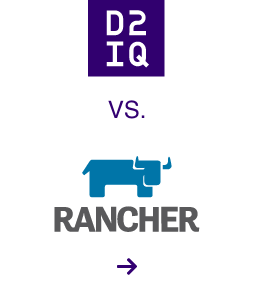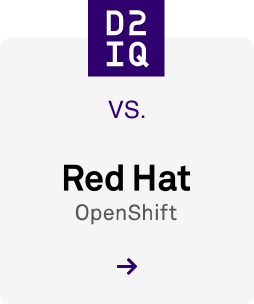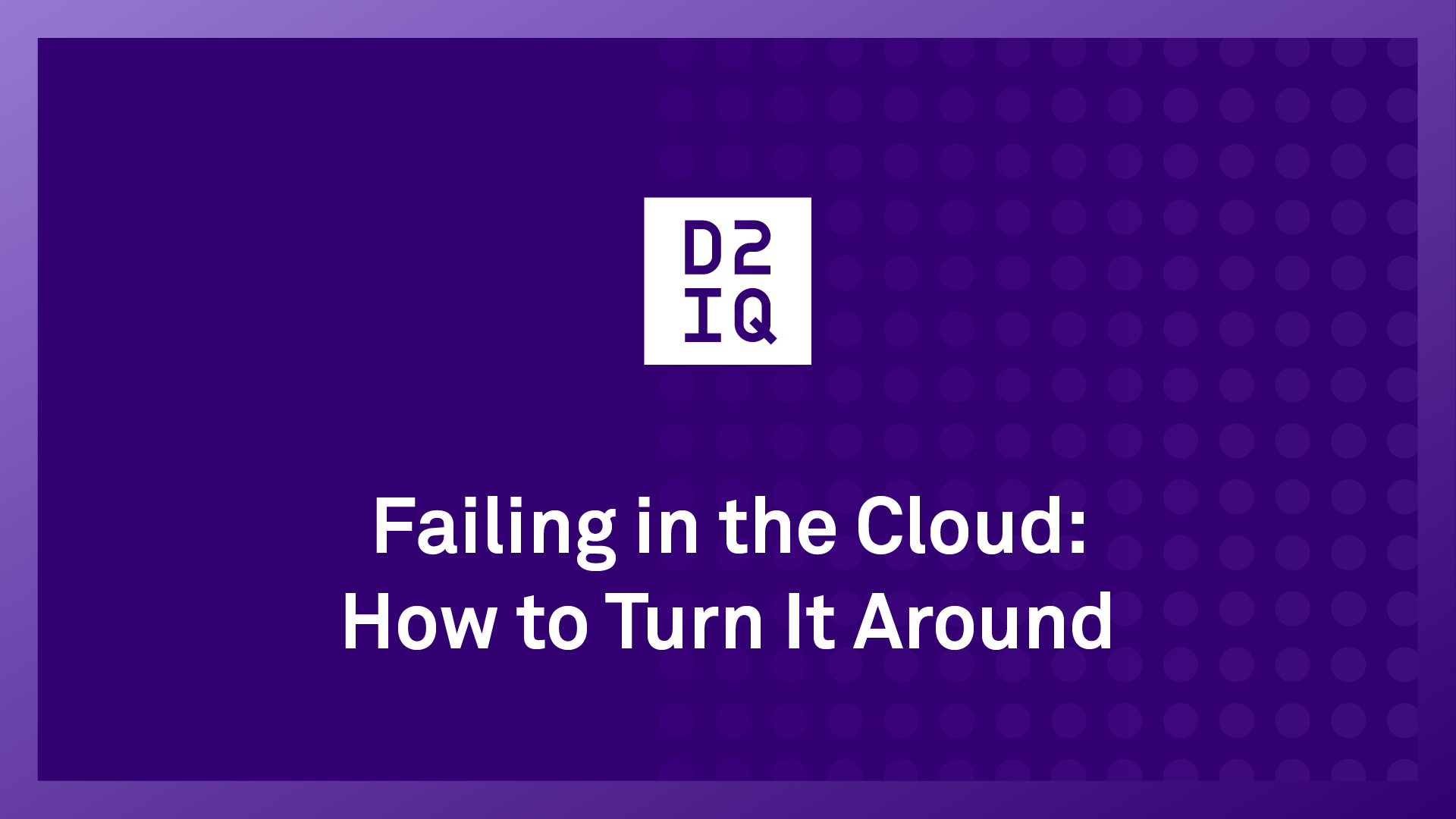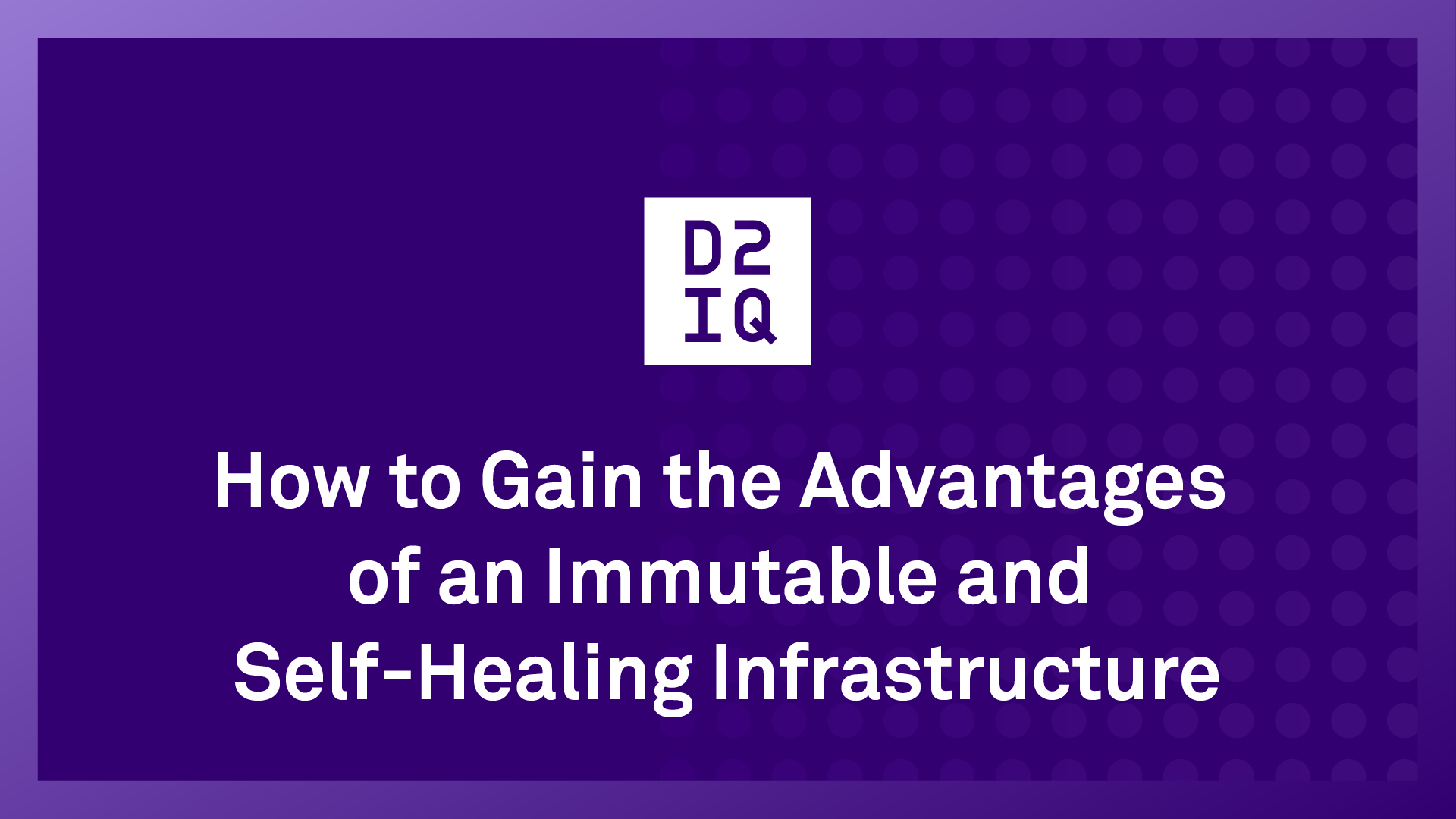Kubernetes Platform Management: Simplification Through Automation
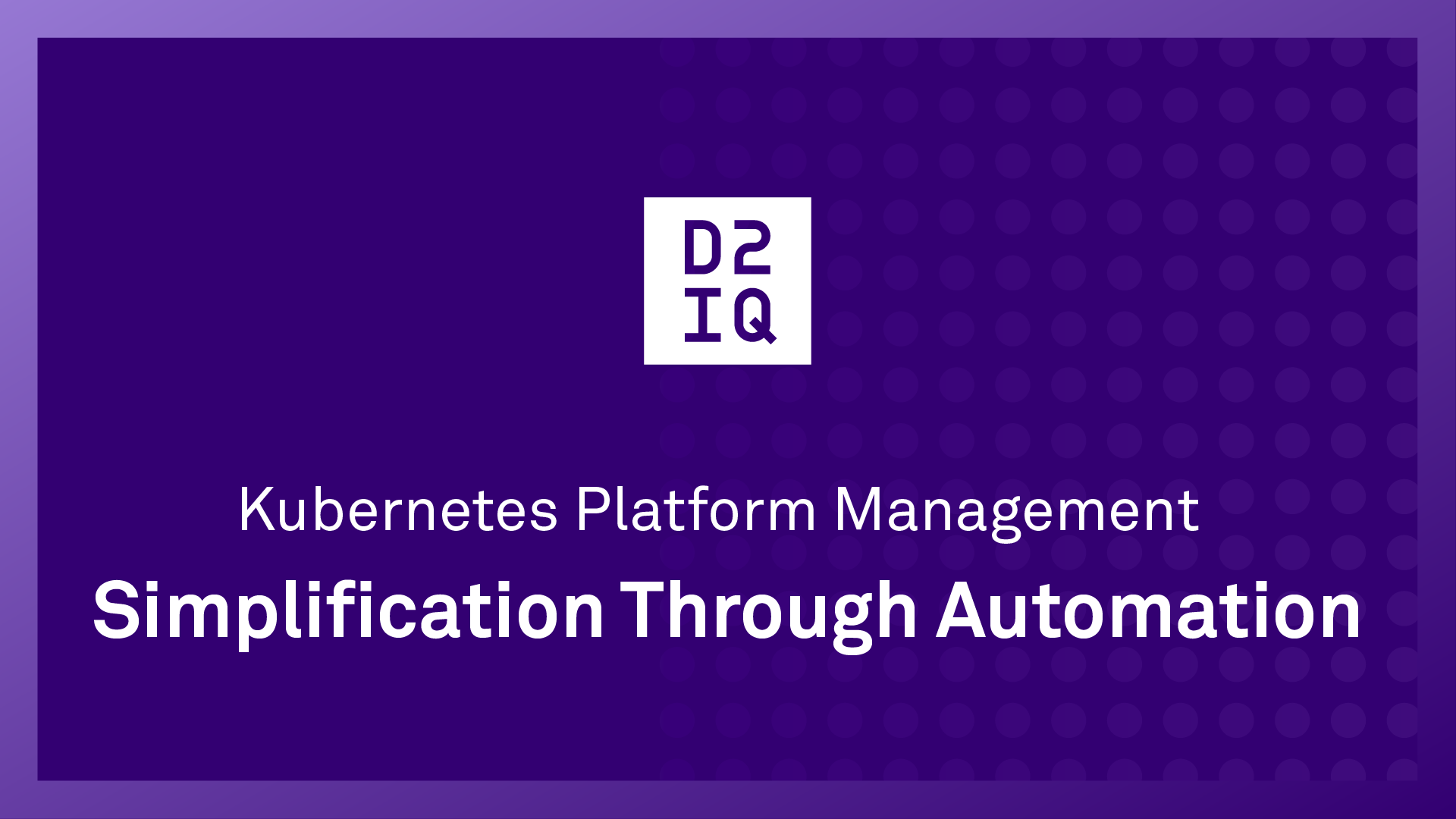
7 min read
DKP Automation
- Monitoring
- Logging
- Security
- Backup and restore applications
- Certificate management
- Policy agent
- Ingress and load balancer
DKP can extend automatically the deployment of this stack of Day 2 applications to any clusters that DKP manages. Customers can choose any Kubernetes distribution and have it managed by DKP. Customers can manage AWS EKS, Microsoft AKS, and Google Cloud Platform clusters through the DKP management plane without choosing the Day 2 applications that make them complete.
Centralized Monitoring. DKP enables monitoring of the entire fleet of clusters from a single monitoring interface. Whenever DKP provisions a cluster, it automatically binds it to a centralized monitoring system, giving a cluster administrator a consolidated view of the entire Kubernetes infrastructure.
Centralized Cost Management. DKP has a centralized cost management system that gives a cluster administrator the cost of the entire infrastructure. At the same time, it enables a cluster administrator to drill into the per cluster cost, per namespace cost, or per pod cost, all from the centralized cost management system.
Automatic Backup. DKP deploys Velero as part of its Day 2 platform applications, enabling a cluster administrator to configure automatic and periodic backups of clusters. This important feature includes disaster recovery in case a catastrophic failure occurs with any cluster.
Catalog Applications. DKP has a built-in catalog of deployable applications with a single click, including applications like Apache Kafka, Spark, and Cassandra.
Custom Catalog Applications. Applications can be developed without an endpoint in mind and deployed anywhere. DKP not only makes it possible, but makes it easy.
Continuous Deployment - DKP has built-in FluxCD support that enables declarative deployment of clusters and applications, helping organizations automate many workflows. Customers can create a whole new cluster by committing the manifest to Git. Similarly, developers could quickly and easily deploy, update or patch their applications using GitOps.
Multi-Tenant Logging. DKP can push logs simultaneously to multiple endpoints. Customers can see their logs not only in DKP dashboards, but also in Elasticsearch or other external applications. Logs are isolated by namespace based on role-based access control (RBAC) settings. This is especially useful when multiple versions of these applications run simultaneously, enabling people to only see the logs for their specific namespace.
Cluster Autoscaling. DKP deploys cluster autoscaler by default, supporting the expansion and contraction of nodes based on application runtime requirements. Autoscaling includes clusters deployed on-premises, in the cloud, or in virtual environments like VMware vSphere.
Auto Provisioning of the VMs. DKP has integrations for VMware vSphere to automatically provision VMs to deploy a Kubernetes cluster, enabling customers to have cloud-like elasticity in on-premises clusters.
Support for Air-Gapped Environments. DKP automates deploying a Kubernetes cluster in an air-gapped environment by providing all the necessary container images, OS dependencies, and required configurations in an easy-to-consume air-gap bundle. It provides automation via the DKP command-line interface (CLI) to push container images from the air-gapped bundle to the private registry. DKP is unique in enabling customers to deploy air-gapped environments in minutes.
To learn more about the D2iQ Kubernetes Platform and how it can help you succeed in modernizing your infrastructure, contact the experts at D2iQ.


